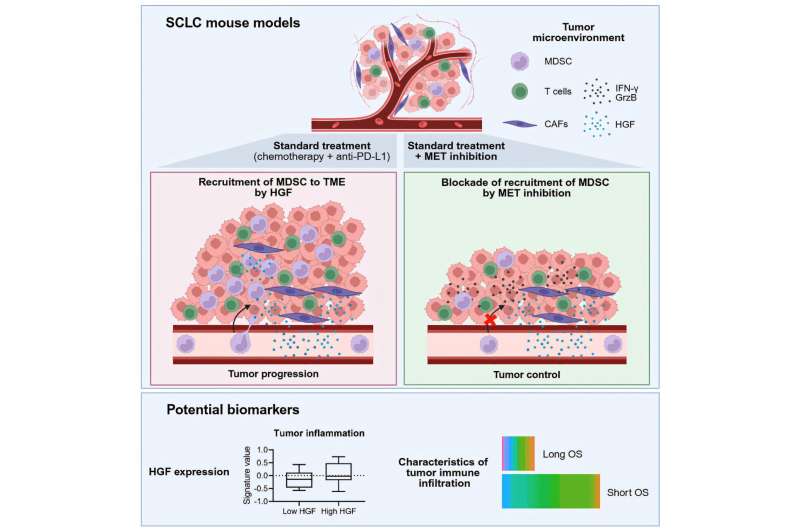The study, published in Cell Reports Medicine, highlights the role of HGF (hepatocyte growth factor)—which is linked to cell proliferation and survival—in the poor prognosis of this disease and its resistance to treatment. The research explores a novel approach that adds a MET inhibitor to standard therapy and demonstrates improved treatment response.
Small cell lung cancer is one of the most aggressive types of lung cancer. Although it accounts for only 15% of all lung cancers, its three-year survival rate is just 15%, due to its rapid progression and late diagnosis, which usually excludes surgical options.
The current treatment consists of a combination of chemotherapy and immunotherapy, but SCLC is known for its strong ability to develop resistance and metastasize. However, this new study opens a promising pathway for tackling the disease.

